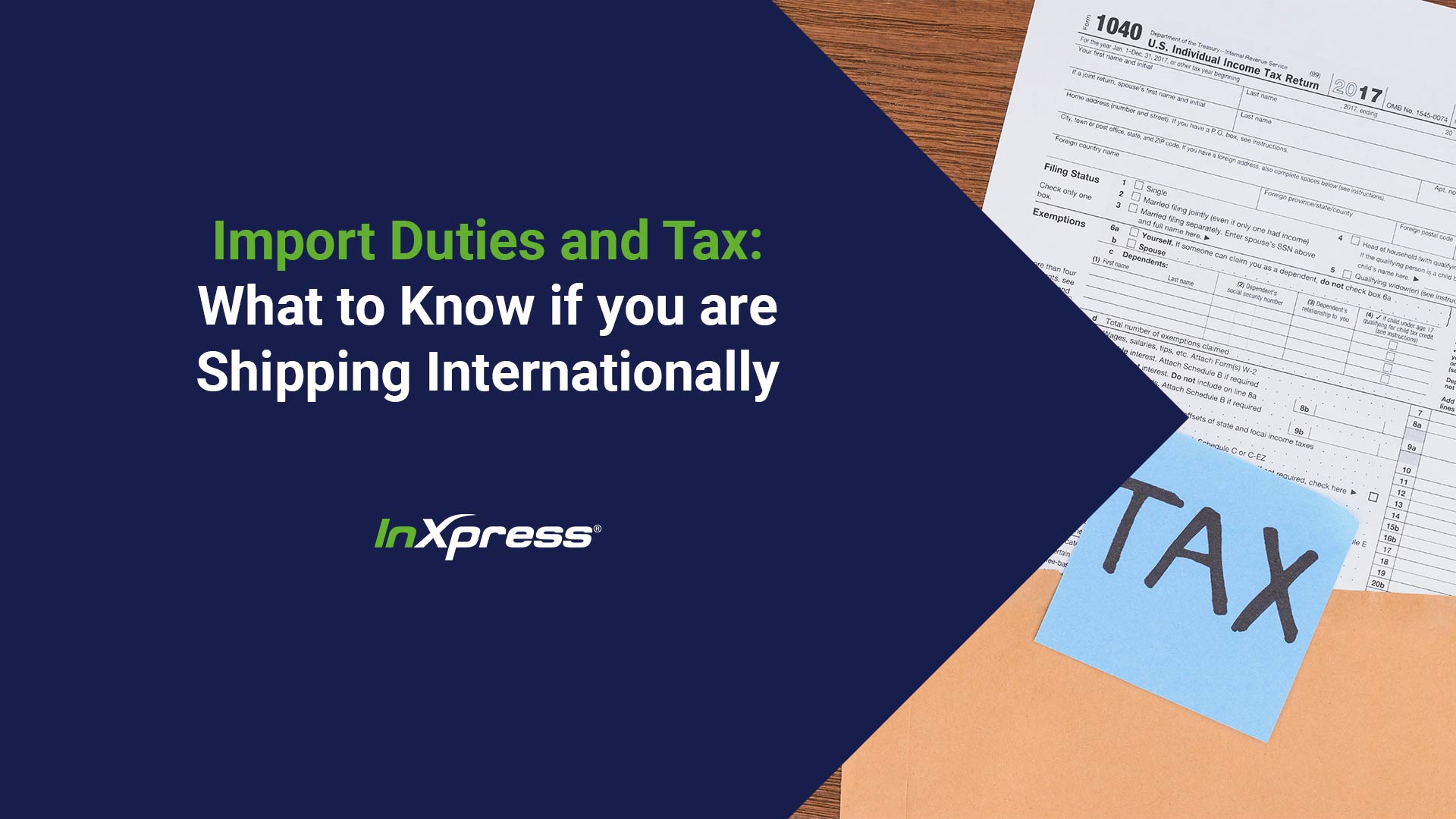Import Duties and Tax: What to Know if you are Shipping Internationally

Need to ship goods internationally? Not sure what duties & taxes (if any) may apply to your parcels?
It’s important to know that duties and taxes on shipments are legal requirements that must be settled before your shipment can be released and delivered.
We, at
InXpress Sandton, have created the below quick-read guide to help you understand and calculate any duties & taxes that may apply as well as better prepare you for your international shipment processes.
Why Do We Need to Pay For Duties & Taxes?
Governments place these fees on certain imported goods in order to:
- Protect domestic industries from foreign competitors.
- Manage and control the flow of certain products.
- Generate revenue
Duties & Taxes: The Differences & How They Are Calculated
Import fees are important to consider when planning for international shipping. While the terms duties, taxes and tariffs are often used interchangeably, it’s important to note the differences between them.
***Duties***
A kind of tax on cross-border goods that’s collected by customs for government revenue and to protect local industries. (Duties are charged on both goods and financial transactions)
Types of Customs Duties:
- Import Duties (or Tariffs) are a tax that the importer has to pay to bring foreign goods INTO the country.
- Export Duties: Paid for by the exporter.
- Anti-Dumping Taxes & Countervailing Duty (CVD)
- Protective Duties
- Trade Tariffs
Will You Need to Pay Import Duties?
Two main factors that determine whether or not you will have to pay import duties:
- Which country you are shipping to.
- What items you are shipping.
Visit the official government website of your destination country to find out what (if any) import duties will apply to your shipment.
Calculating Import Duties:
First - Determine The Duty Percentage Rate:
This rate varies depending on the country you're shipping to. Visit the customs or trade tariff page on the official government website of your destination country. (You can usually search for duty rates using an HS code or product description)
Calculate the duty on your shipment:
- Add up the value of the goods (courier costs, insurance and any additional costs)
- Multiply this total by the duty rate (above).
The result is the amount of duty you'll need to pay customs for your shipment.
Note: Rate calculation methods may vary by country, it’s important to check this on the government website or with your carrier.
***Taxes***
The government fees applied to purchased goods coming into a country (imported).
(Even though the goods have been purchased in another country, this tax still applies and will be collected by Customs when the goods enter a country)
Types of Taxes:
The below types of tax are more or less synonymous (with names and rates varying from country to country). Tax rates are calculated at a percentage of the value of the goods. Generally 0%, 10%, 20% or more (depending on the country and item).
- Sales Tax
- Value-Added Tax (VAT)
- Charged to consumers when they buy any good or service.
- Goods and Services Tax (GST)
- Flat-rate percentage of the total transaction - Instead of a percentage of the value added.
Who Pays For These Taxes:
Taxes are usually paid for by the importer (the person receiving the goods). Check with your courier company as this may be paid for by them and added to your invoice.
How To Calculate Tax on an Item:
First - Find out the sales tax (VAT) rates of the country that you’re shipping to.
Calculate the VAT on your shipment:
- Add up the goods (value, courier costs, insurance, import duty and any additional costs)
- Multiply the total by the destination country's applicable VAT rate.
Your result will be the amount of VAT you will need to pay customs for your shipment.
So What’s The Difference? (Duties Vs Taxes)
Duties are a type of tax on goods entering or leaving a country, while taxes are fees placed on almost ALL purchases. Both contribute to the total import and export costs of a product.
You’ll find that import duty percentages vary for each category of goods, while VAT and GST are more consistent and standardised.
What are Duties & Taxes Based On?
- The value of the goods
- The HS code (used to classify the product type)
- This code should match the below ‘Description’.
- The goods ‘Description’ on the commercial invoice
- (Including the product's end-use and country of manufacture).
- The Incoterms® on the commercial invoice
- Defines the agreement between sender and receiver about who pays for shipping costs (including taxes and duties).
- International trade agreements between countries
Other costs to keep in mind:
There are other charges that may be applied to your shipment, these vary from shipping insurances to parcel handling related charges.
Understanding what impacts and goes into the total cost of your international shipments can assist you in getting a better idea of what you should be paying and in preparing you for the shipment process.
For more information on what other charges may apply to your shipment, check out our blog on
Understanding & Calculating Your International Shipment Costs or feel free to
contact us for assistance.











